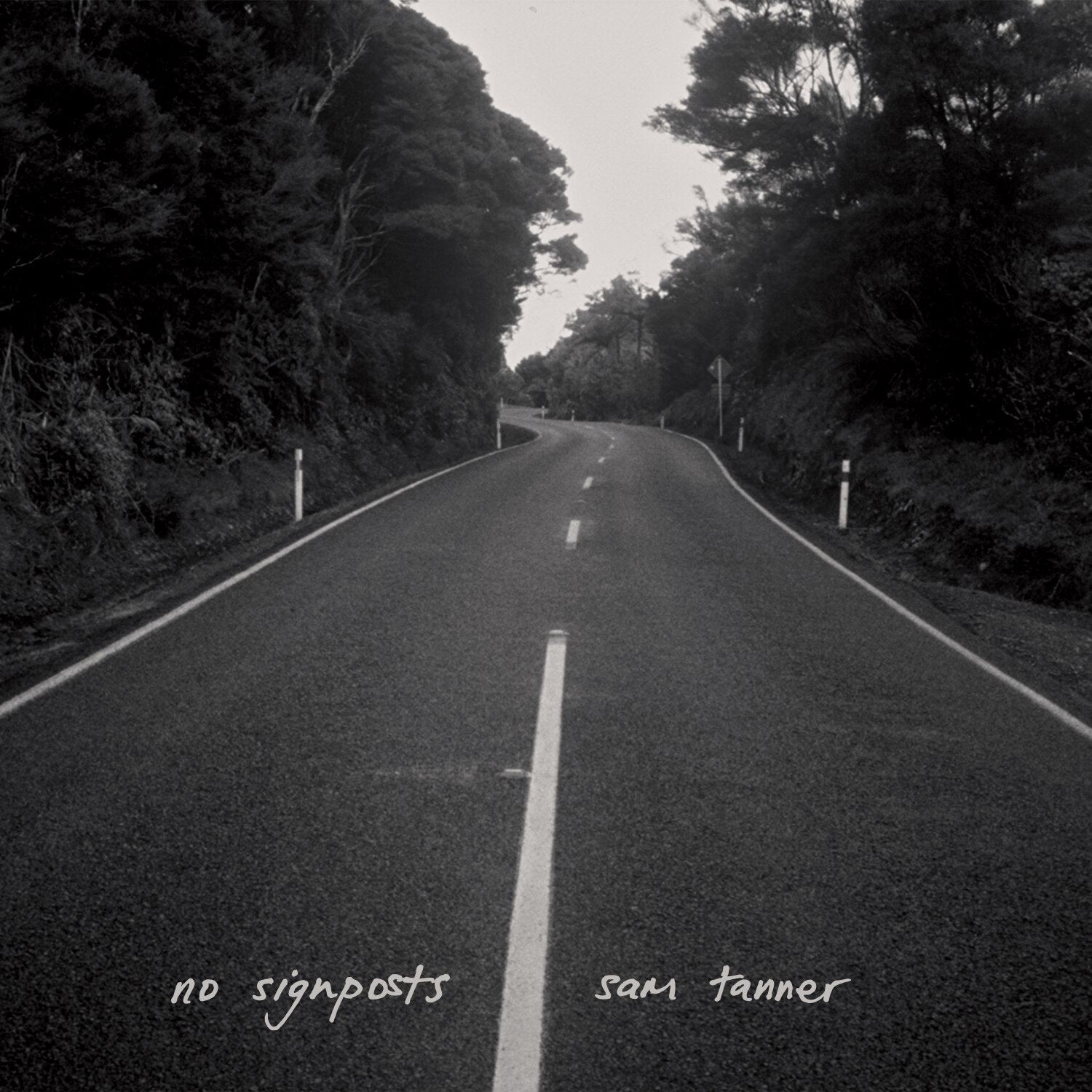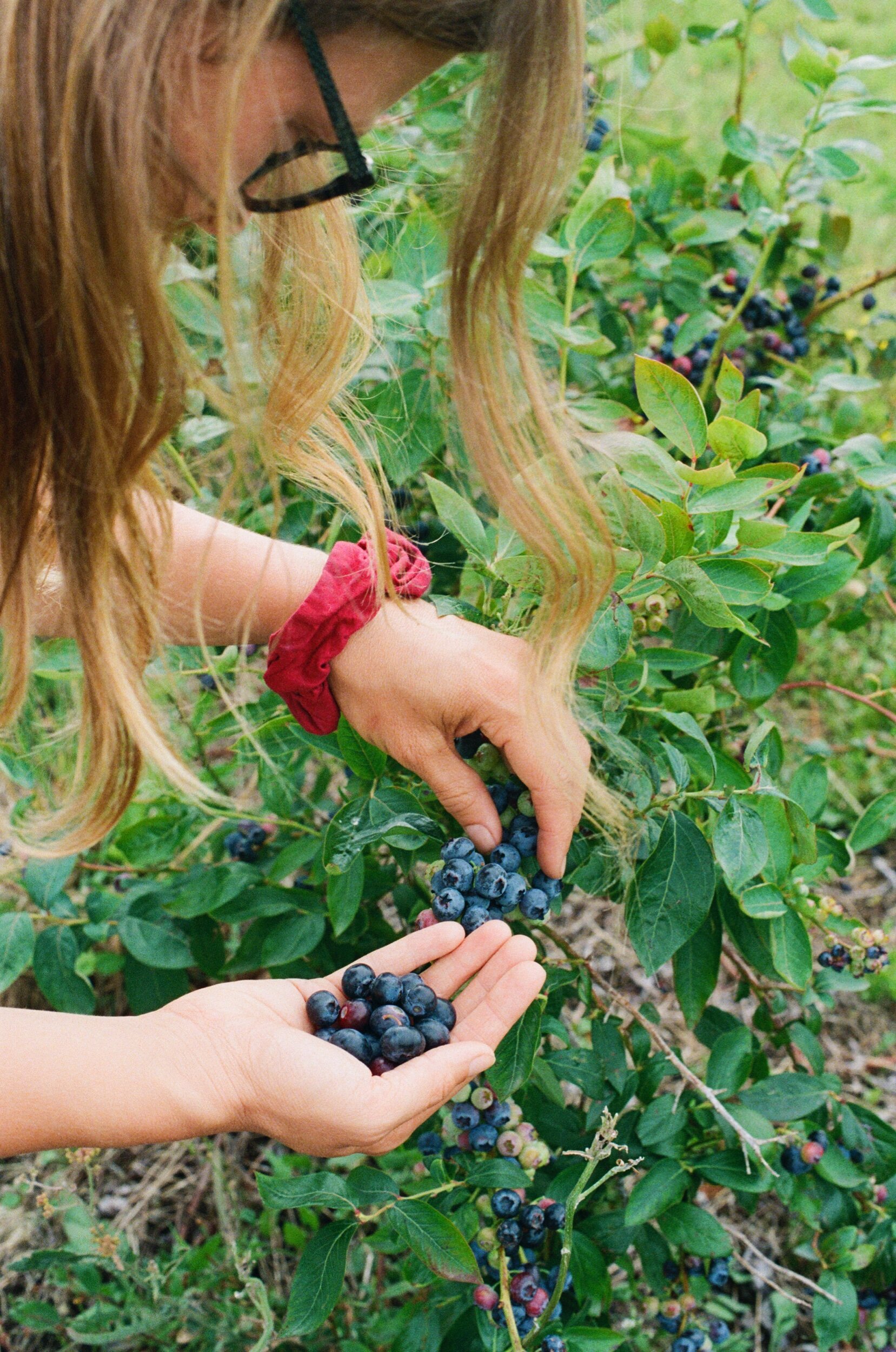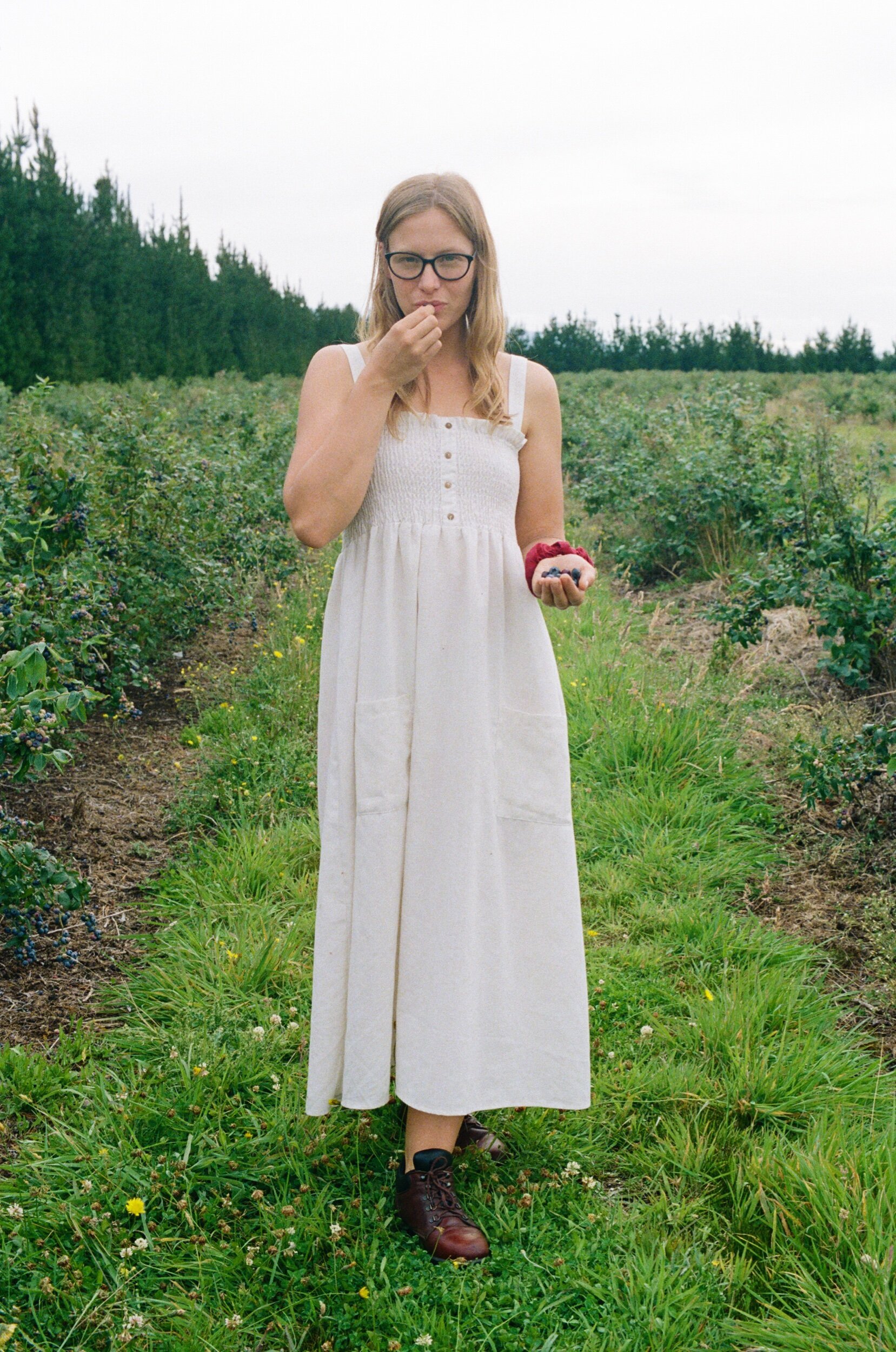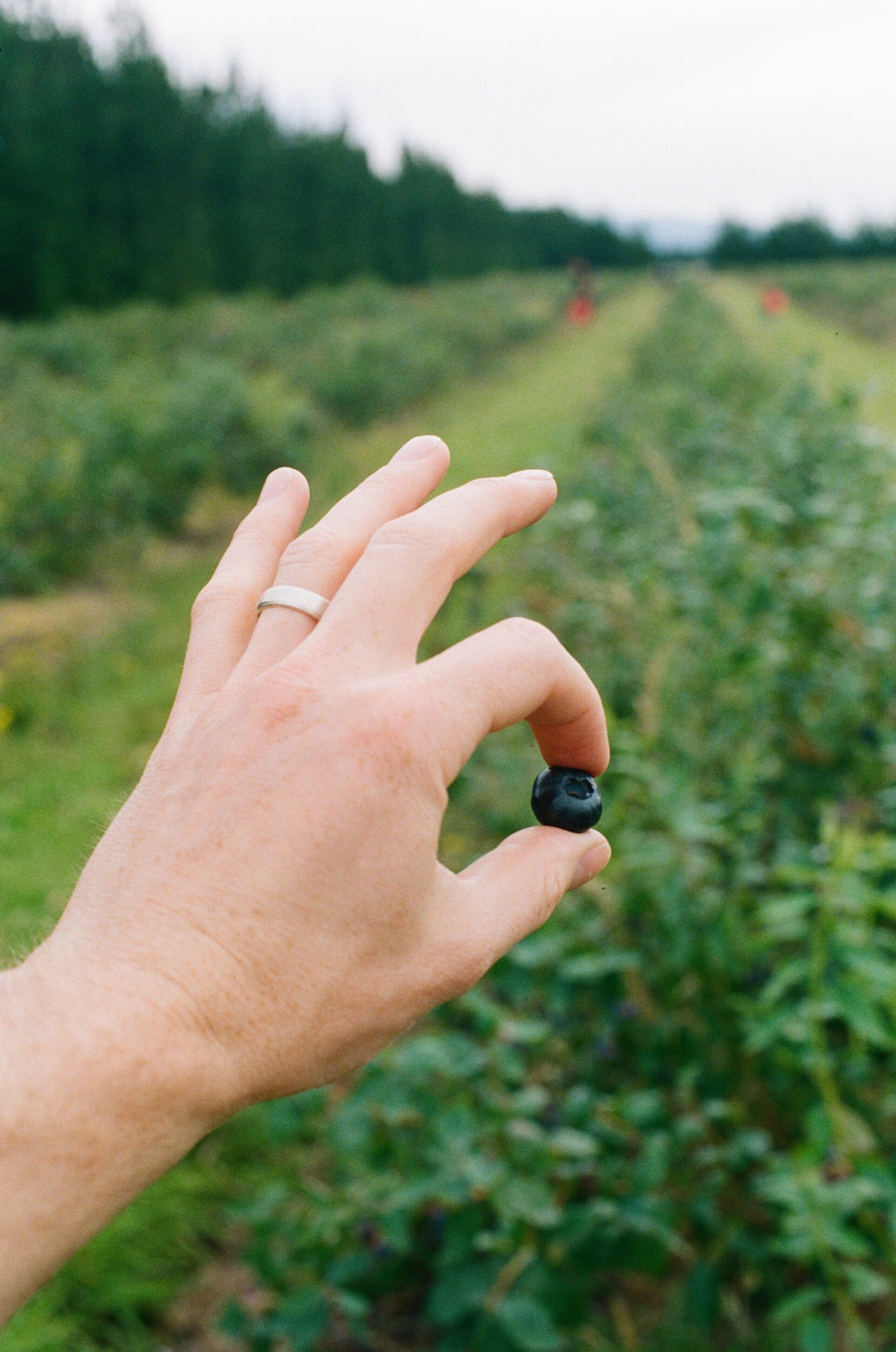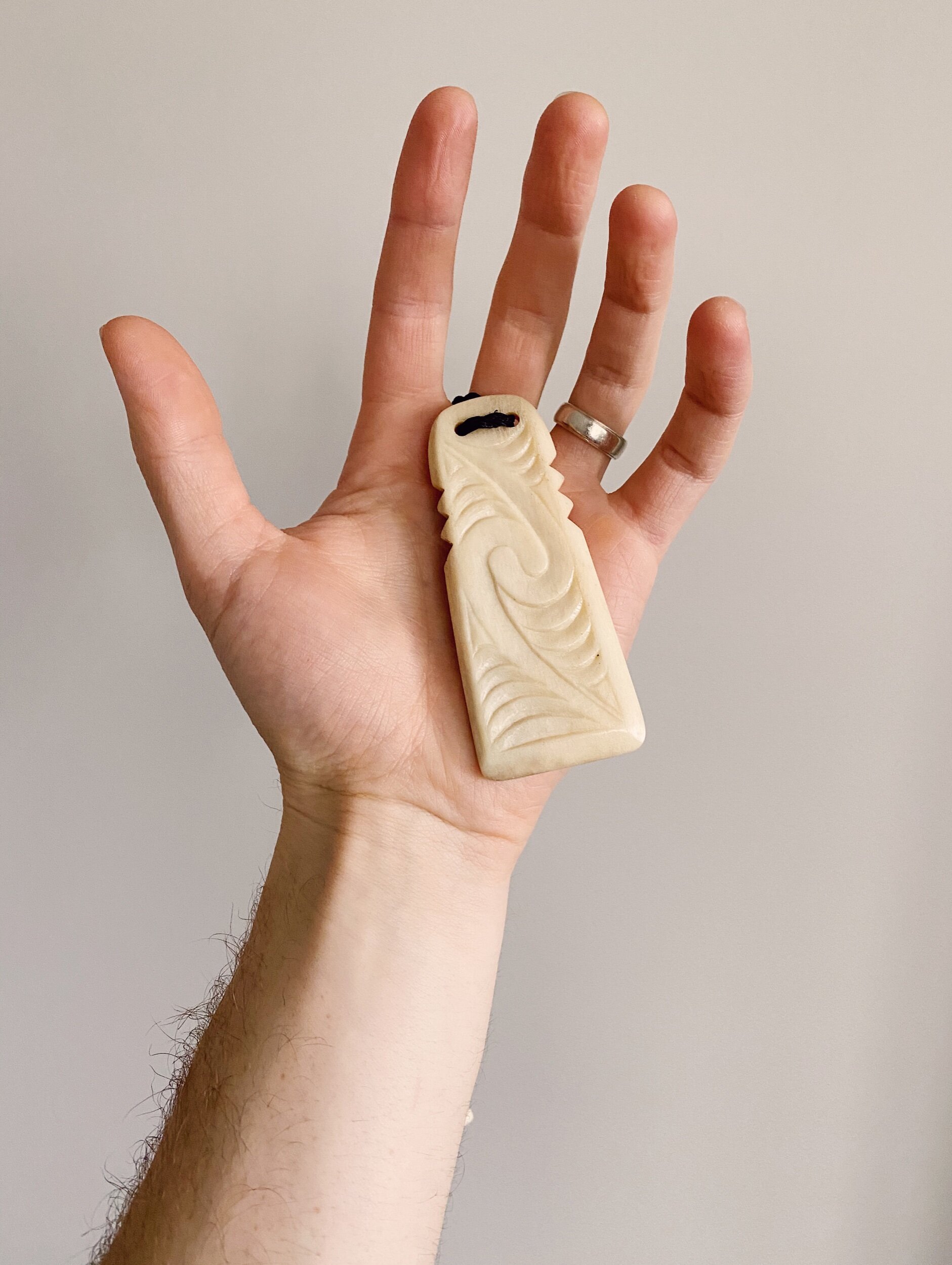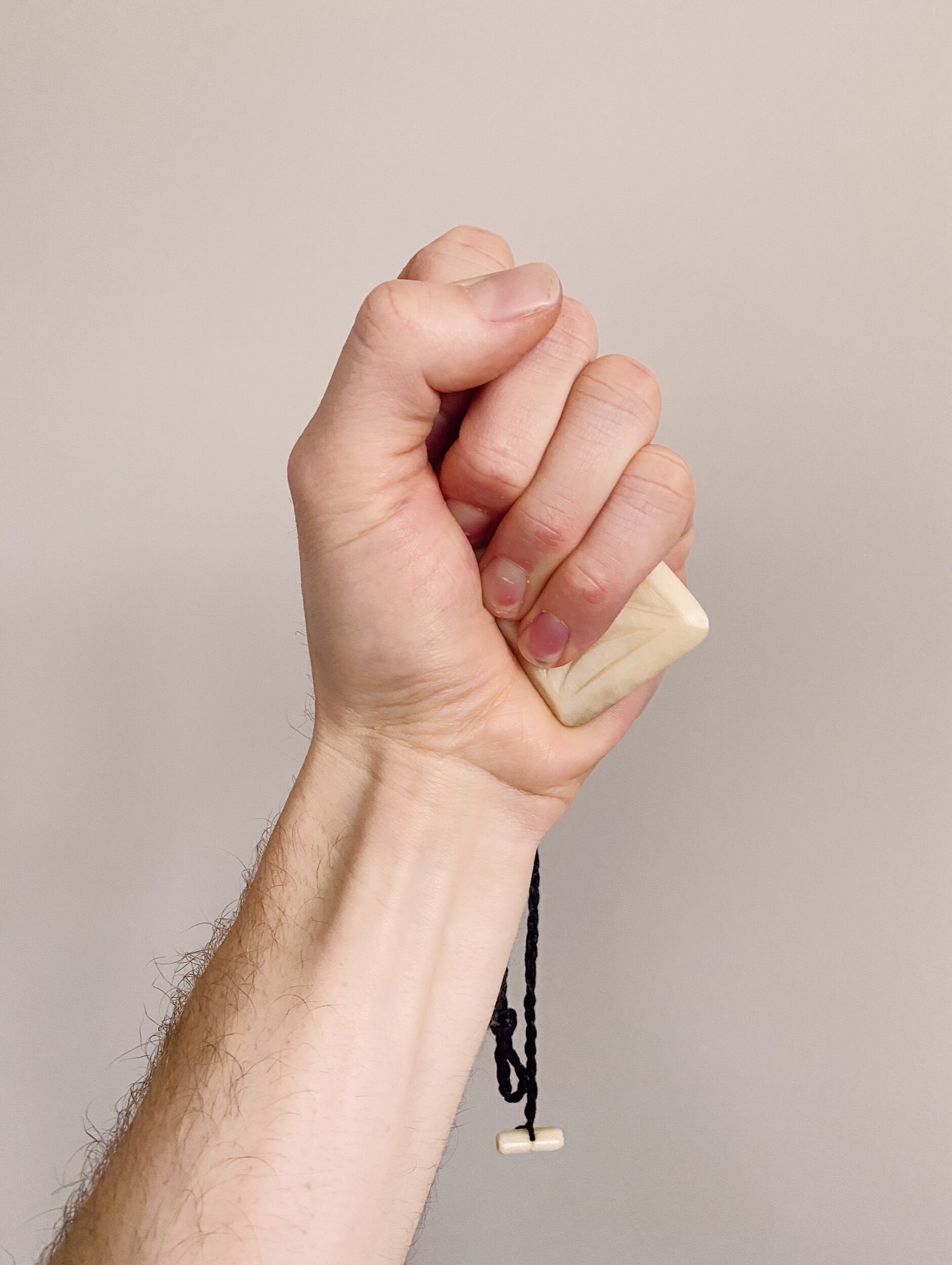No Signposts EP: losing faith
Winter 2015: I was sitting up late into the night, alone in my friend Ben’s recording studio, pouring out my heart with my guitar and my songwriting book.
At the time Lily and I were firmly embedded in the christian world. We’d been involved in churches for years, studied at a christian performing arts school, got married super young, and I was the worship pastor at church. I had already begun to think for myself about certain issues, one of them being LGBTQ rights, and had been sharing openly about the things I was listening to and feeling strongly about. The resulting reactions from christians (both to my face and behind my back) as I grew, explored, and shared, began to erode my sense of safety within the church. After sticking it out for far too long, it became clear that we needed to leave.
It was a very lonely time, and for a few years it felt like the only people who understood what I was going through were strangers on the internet. I dove heavily into studying the history of christianity, philosophical critiques of it through the ages, other expressions… It started to become clear that much of christianity was closer to the religion and empire that murdered Jesus than it was to his life and teachings. If the way of Jesus was to question religious corruption, control, oppression, it’s relationship with power, and to stand with those who were suffering under it - to the point where they killed him for it - then maybe I had to be ok with not belonging inside of religion too.
Christ seemed more compelling and moving than ever, but for the same reasons I was well and truly losing my faith in the western church and the core message of christianity (atonement).
These songs were birthed from this season. Losing faith; finding curiousity, openness, growth.
I lost a lot, grieved a lot, processed a lot. Still unpacking things. I found new friends, new authors and teachers, a new way to live and move through the world.
I lost my faith, and found something better.
Five years later, winter 2020, I finally felt I understood my journey enough to give these deeply personal songs the life they deserved. My friend Jordan and I completely filled the back of the family wagon with musical instruments and recording gear, and roadtripped to the shores of Lake Taupō for an appropiately moody, wet, weekend; recording by the fire with bottomless arcoroc mugs of port. I shot photos over the trip to accompany the project, which you can see on the website nosignposts.nz, where the project can be experienced in it’s entirety.
Maybe I should get these songs and stories on the road sometime?
All Creation Keeps Creating
“Consider the ravens: They do not sow or reap, they have no storeroom or barn; yet God feeds them. And how much more valuable you are than birds!”.
“Consider the ravens: They do not sow or reap, they have no storeroom or barn; yet God feeds them. And how much more valuable you are than birds!”.
I’ve realised recently that Mother Earth, Papatūānuku, never stops giving.
I’ve been observing and admiring how nature always “finds a way”. A tree is chopped down, and months later a small shoot rises up from the edge of the flat stump, reaching for the spring sun. A tiny seed is pressed into soil, and given a little water it sprouts and grows into food in a number of weeks. Trees grow out of the side of a rock on a steep hillside. Branches and trunks bend and twist towards the light in whatever space is given to them.
She never stops living, she never stops giving.
But the verse says “God feeds them” - if that is true then why are people still going hungry? Where is God today? This is a question I struggle with and I wanted to offer a thought, alongside these photos I took while thinking about it.
If life is always springing up then there is no shortage of it’s potential to feed and bring life to all - it is humans who have created the systems that either strangle it from producing or withhold what is produced. I like to envision the “kingdom” being talked about in scripture by the analogy of a garden. If life is constantly springing up - if nature is working to heal and restore, then we simply need to work with it instead of against it. We can carefully tend to this garden to release it’s potential for life and beauty.
Today I’m seeing this verse and the surrounding verses as a call to relinquish our mindset of scarcity and individualism, and embrace one of generosity and cooperation. “For where your treasure is, there your heart will be also.” Us humans are part of this garden too, and we should tend to our own hearts to see what might need to be trimmed back. We should tend to the systems we have created that deny the rights and dignity of other humans and other living beings in this garden.
Jesus constantly talked about the kingdom being now. I believe it is our duty to participate in the coming of that kingdom, just like he did - a kingdom that might just look something like a flourishing garden.
Then Jesus said to his disciples: “Therefore I tell you, do not worry about your life, what you will eat; or about your body, what you will wear. For life is more than food, and the body more than clothes. Consider the ravens: They do not sow or reap, they have no storeroom or barn; yet God feeds them. And how much more valuable you are than birds! Who of you by worrying can add a single hour to your life? Since you cannot do this very little thing, why do you worry about the rest?
“Consider how the wild flowers grow. They do not labor or spin. Yet I tell you, not even Solomon in all his splendor was dressed like one of these. If that is how God clothes the grass of the field, which is here today, and tomorrow is thrown into the fire, how much more will he clothe you—you of little faith! And do not set your heart on what you will eat or drink; do not worry about it. For the pagan world runs after all such things, and your Father knows that you need them. But seek his kingdom, and these things will be given to you as well.
“Do not be afraid, little flock, for your Father has been pleased to give you the kingdom. Sell your possessions and give to the poor. Provide purses for yourselves that will not wear out, a treasure in heaven that will never fail, where no thief comes near and no moth destroys. For where your treasure is, there your heart will be also.
- Luke 12
Racism & Decolonisation in Aotearoa
It’s time to listen.
Last updated with additional resources 09/07/2020
There’s been a heap of talk on social media around the Black Lives Matter movement and racism in general, which has been stimulating discussions here in Aotearoa as well. In light of this, and conversations I have been having, I just wanted to pull together some of the resources I have found helpful on my journey as a person of white privilege who calls Aotearoa home. I wrote in my reflection on Ihumātao that privilege comes with responsibility. I believe that part of this responsibility is seeking out the true history of this country.
It’s time to listen.
This is in no way an extensive list, but I hope it provides a starting point for people who want to understand the ongoing struggle in our country. Let me know in the comments if you have other resources to share.
Te Tiriti o Waitangi in a Future Constitution - Removing the Shackles of Colonisation (lecture by Margaret Mutu)
Huia Come Home (book)
Take Action via:
I confront my white privilege, I confront my racism. I commit to deconstructing racist systems, the systemic evils that exist (“powers and principalities” as Jesus put it). I commit to listening to voices of those oppressed and harmed by systemic and individual racism. I commit to learning more. I commit to teaching my kids. I wear my taonga with a necessarily-heavy heart as a reminder that this work is what I must do, as someone who benefits from the colour of my skin and the historic and ongoing suffering of those who are different.
And I am sorry, my Māori/Pasifika/POC friends... I know as I’ve stepped into this space I have made mistakes and fallen short, but I can’t just say and do nothing. I post this not to pat myself on the back but as a public declaration of my commitment.
UPDATES
I will continue to keep this page updated with resources on racism below as I find them.
Resources on Race and Social Justice
-Direct quote from a newsletter from the Centre for Action and Contemplation-
The topic of race and social justice is very important to the work we do at the CAC. These resources have influenced the thinking of our staff and teachers, and we encourage you to look through them, see what resonates with you, and to incorporate those sources to continue into your understanding of this issue. We've broken them up into categories so that you can choose the medium which is best for you.
Articles
Worship of a False God - An Interview with Bryan Massingale by Regina Munch (Commonweal Magazine)
Open Letter to a Friend Waking Up to Racism by Ángel Flores Fontánez, SJ (The Jesuit Post)
A Letter to my White Male Friend of a Certain Age by Dax Devlon-Ross (Third Settlements)
Smithsonian's 158 Resources to Understand Racism in America by Meilan Solly (Smithsonian Magazine)
Books
Race and the Cosmos by Barbara Holmes
The New Jim Crow: Mass Incarceration in the Age of Colorblindness by Michelle Alexander
White Fragility: Why It's So Hard For White People To Talk About Racism by Robin DiAngelo
Just Mercy: A Story of Justice and Redemption by Bryan Stevenson
Pedagogy of the Oppressed by Paolo Freire
Between the World and Me by Ta-Nehisi Coates
The Fire Next Time by James Baldwin
Film
Podcasts
Stars & Stillness
Recently I got out under the stars with my good friend Larryn (Shadow & Shade). He helped me guess some settings on my Hasselblad; we had chippies, ginger beer, and good chats; and in the dead of the night we sat in deep, reverent silence while looking up at the stars.
Recently I got out under the stars with my good friend Larryn (Shadow & Shade). He helped me guess some settings on my Hasselblad; we had chippies, ginger beer, and good chats; and in the dead of the night we sat in deep, reverent silence while looking up at the stars. I thought about how I am so hyper-connected as I walk through my life, and how even though I am aware of that, it seems so difficult to make time to actually dis-connect from all of that information and stimuli. It was so refreshing. I sat down and wrote some reflections in the weeks following, and this poem came out of those words.
shot by me: Hasselblad 500cm on Ektar 100 film
I am still, completely still,
the world spins on.
I am still, slowly fading.
The night rises, like the blanket I pull over my chest,
as I stare up into the invisible vortex of stars.
She is still, she is always moving.
Am I a passenger, or an observer?
As I feel the extent of my small-ness under her majesty,
The distance and close-ness of it all,
The symphony of stars - dying and birthing to another time signature than this,
I take a breath, and participate in the divine.
I am still.
go check out Larryn’s incredible work: www.shadowandshade.co.nz // @shadowandshadenz
dev+scan: The Black & White Box
Ihumātao: Privilege and Responsibility
It’s been over 3 weeks since I visited Ihumātao and my stomach is still churning every day, my mind trying to hold steady as the waves of love, pride, grief, and anger crash into each other and threaten to tip me off balance - as I sit in my office chair and attempt to write emails and answer phone calls.
It’s been over 3 weeks since I visited Ihumātao and my stomach is still churning every day, my mind trying to hold steady as the waves of love, pride, grief, and anger crash into each other and threaten to tip me off balance - as I sit in my office chair and attempt to write emails and answer phone calls. I feel the burning need to write something about my experience and what I’m learning. So here’s a letter to all my fellow people of white privilege (especially people who identify as christian) - we need to talk about Ihumātao.
I’m not an expert on these topics and I will be making generalisations so I’m sorry for that in advance, but I’d rather talk about this imperfectly than not at all. I know I don’t have all the answers but I feel the need to be straight about this. I’ll share some of my photos from Ihumātao here too, but because I’d rather focus on this important conversation in this blog post, the stories that go with the photos will be in the captions on instagram as I slowly share them over there.
I shot a couple of rolls of colour on the Hasselblad 500CM, but mostly Tri-X 400 black and white 35mm film as I wanted to draw some parallels to Bastion Point. I struggled with feeling disingenuous while taking photos since I was only going to be there for two days - this is the kind of thing that requires a long-term commitment (like what Jos Wheeler is doing), and I didn’t want to be seen as going there to take photos for my own gain, but my gut feel was that I needed to go anyway. I was made to feel so welcome and I’m so glad I went. It was worth it just to be there to show my support, and to learn and be transformed by the experience. The photos are just an added bonus that I hope will give you an idea of what I felt at Ihumātao.
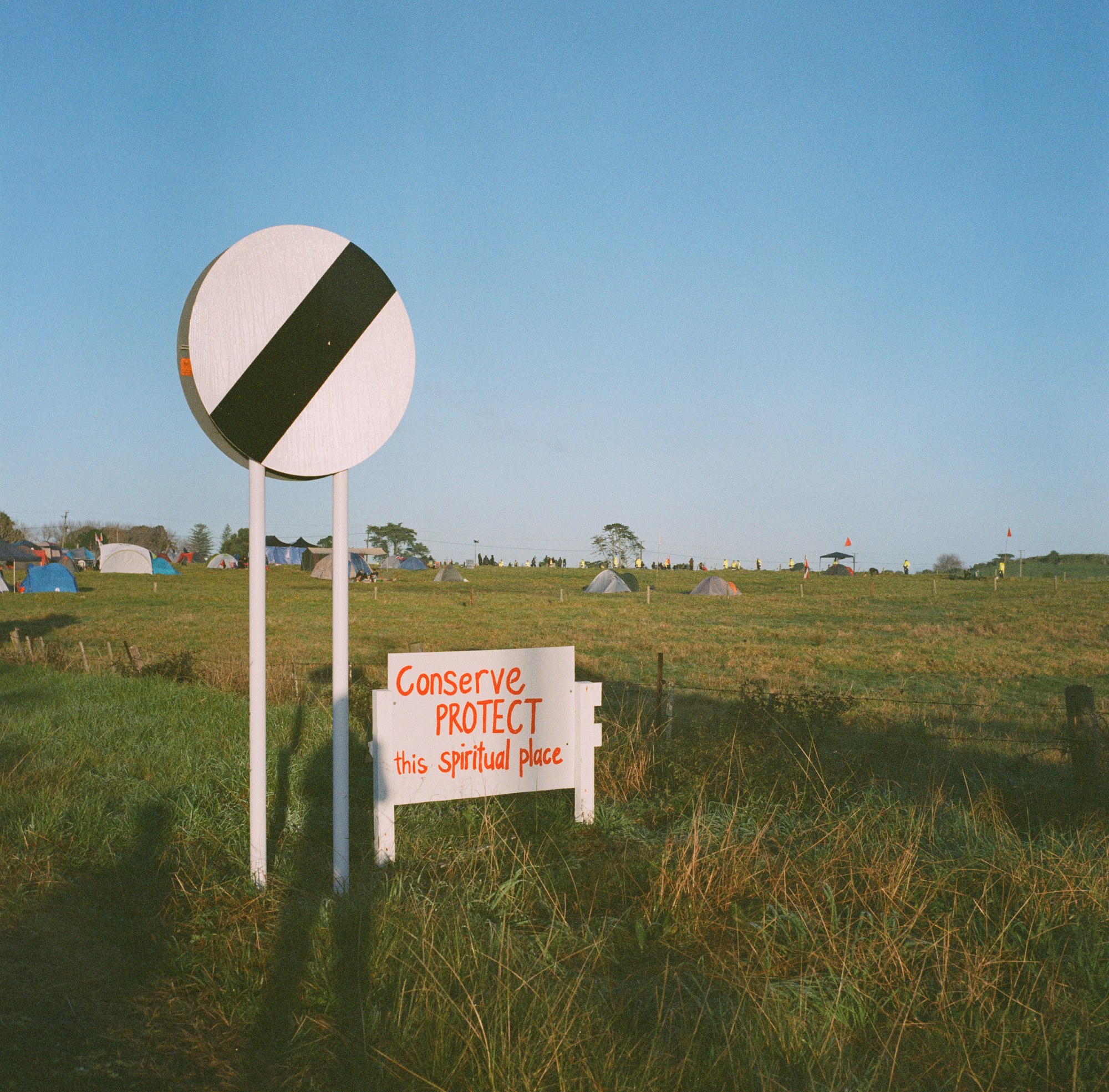
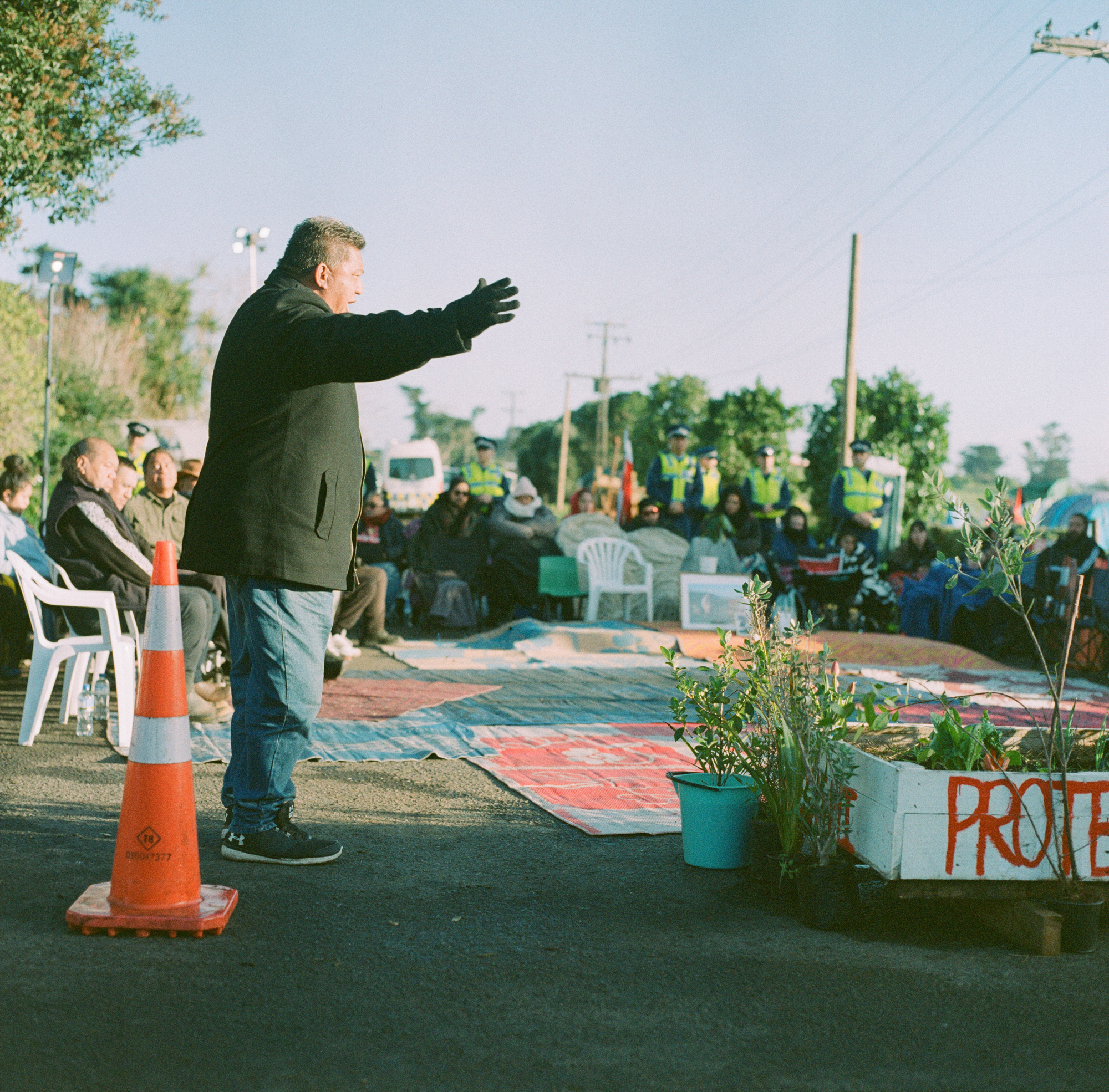
Sources of information.
Firstly, a word about information. Don’t believe everything you see in the traditional media, and don’t take snippets of coverage as a complete picture of what is going on. The movement at Ihumātao is the most beautiful, peaceful, and heartbreaking movement I have experienced, and brief slots in the news will never do it justice. It’s really difficult to try and explain the effect my visit has had on me. I could just feel everything so intensely - the peacefulness, aroha, and resilience from the protectors and leaders, the strength and importance of the land, and the shared grief in the air, like the morning fog - rising from the ground and lingering among us. Honestly, I’m still processing it all and I think it’s going to take a while.
Check out the links below, and see my instagram posts for more about my experience there.
Best of all, visit Ihumātao if you can - I promise you will find the people super welcoming. The day I was there, people were being welcomed on to the whenua all day, a never-ending supply of food was passed around, people were made to feel welcome and you could just feel the aroha.
Cultural worldview.
We need to recognise that we all have a lens through which we view the world, and one major factor that shapes this lens/worldview is the culture we are surrounded by. I am not Māori and I didn’t grow up with much exposure to the culture other than the odd song, performance, or pōwhiri. The way we Pākehā view and experience the world is going to be very different to a person that has grown up immersed in Māori culture. For example (again, I’m generalising here) - the western worldview says that land is an asset to be owned, traded, worked for profit or enjoyment, as the owner sees fit. Māori worldview says that we all belong to the land, the land is our mother, she provides for us and is to be respected and protected. It is hard to understand the depths of the second concept if you can’t momentarily attempt to put aside that european lens we’re looking through! But how much more rich, Christ-like, and important is that concept? And side note for christians - we need to identify the western european worldview that has filtered the message of Jesus into the faith tradition we have today, and try to hear his teachings like his original audience did. Remember, Jesus was an indigenous and political revolutionary in a land under occupation of an empire.
It is super important to acknowledge the limitations and bias of our worldviews, because our lens effects the way we see everything.
Privilege.
I’ve been on a journey of waking up to the ways that white privilege, racism, and the effects of colonisation still exist in Aotearoa today. Once you see, you can see it’s subtle and not-so-subtle effects everywhere. I’m not going to make the argument here so I’ll link a great write-up that talks about this: Racism and White Defensiveness in Aotearoa: A Pākehā Perspective. Read with an open mind (looking outside of your experience and open to the experience of others)!
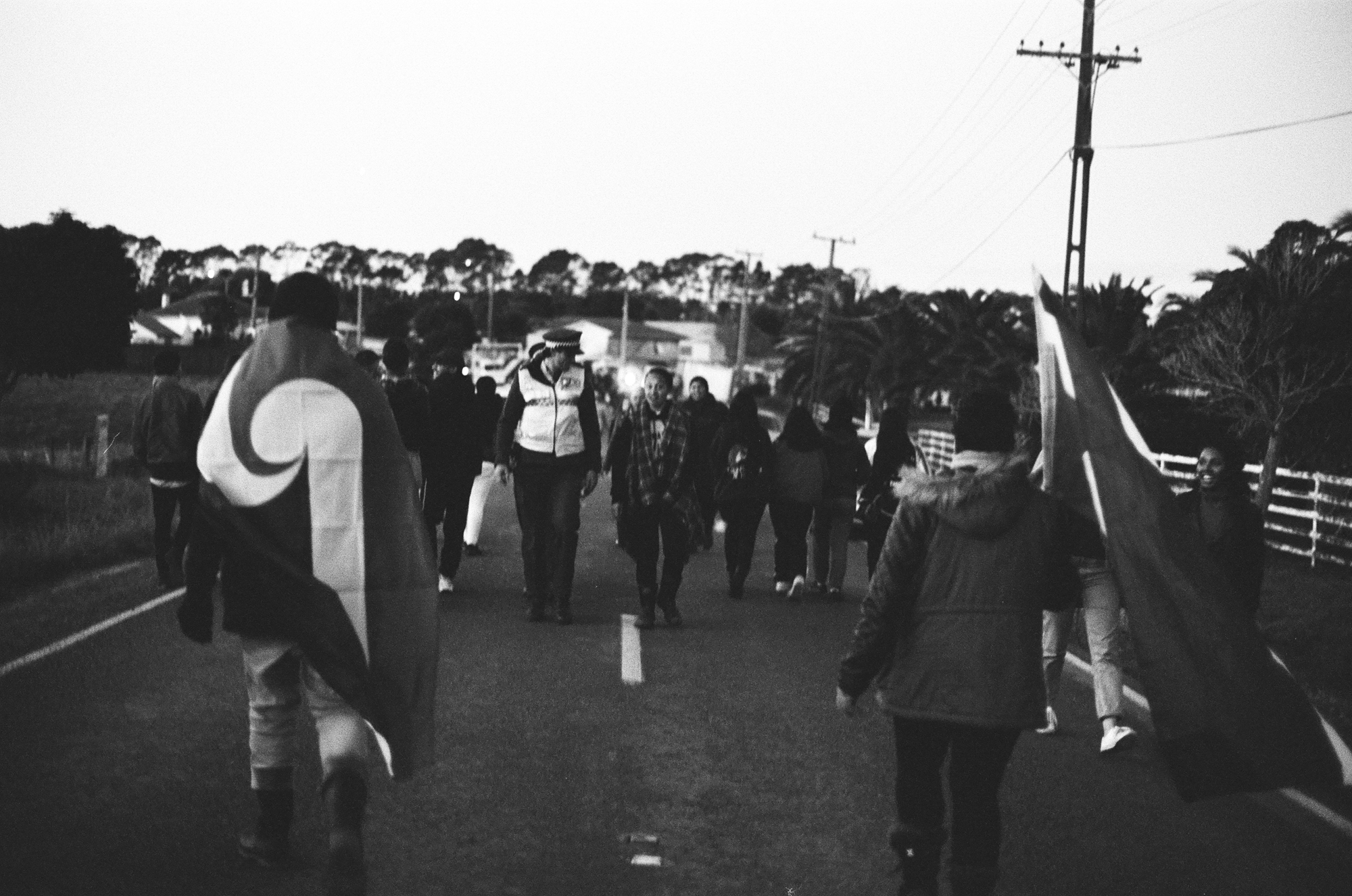
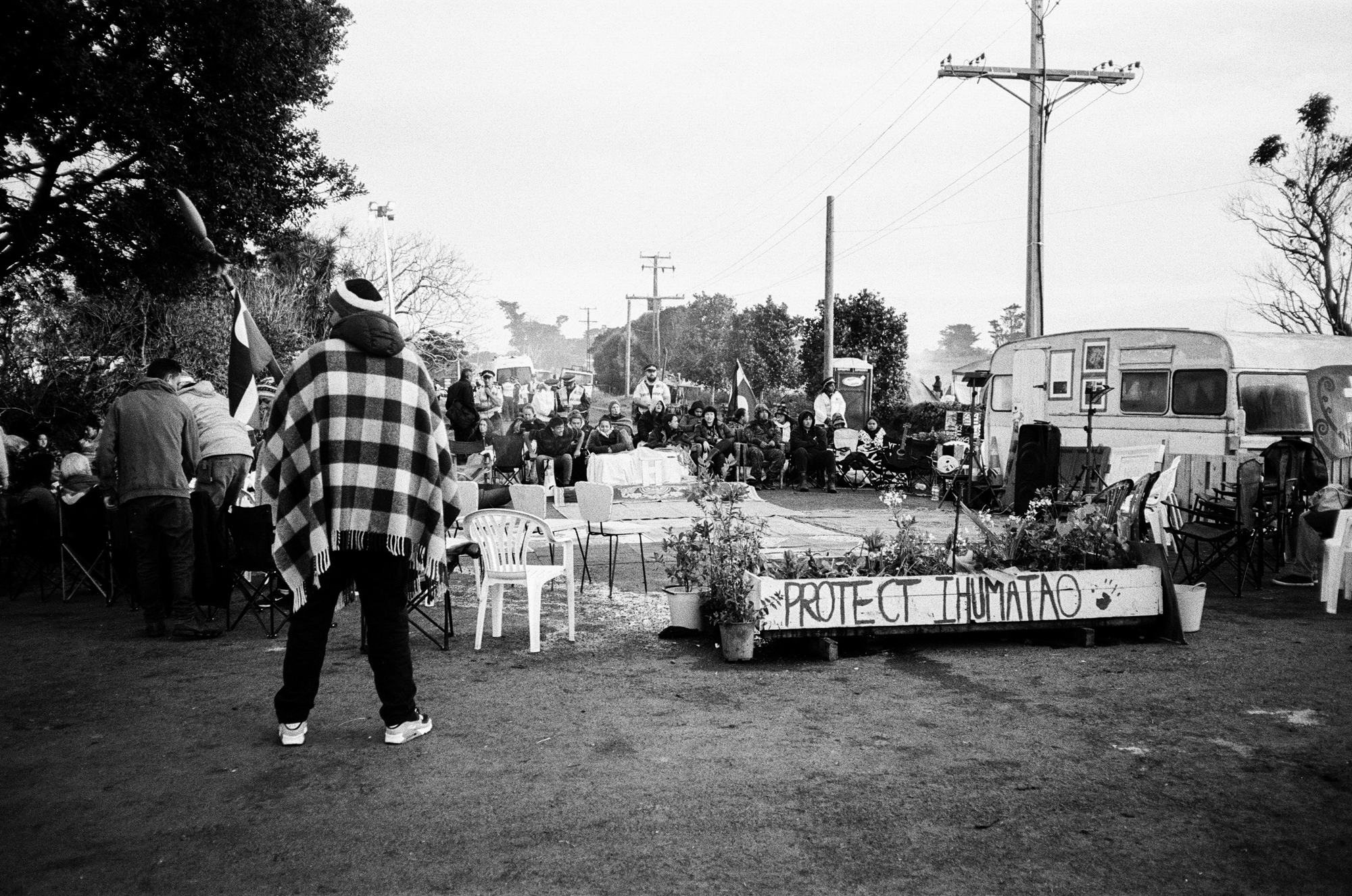
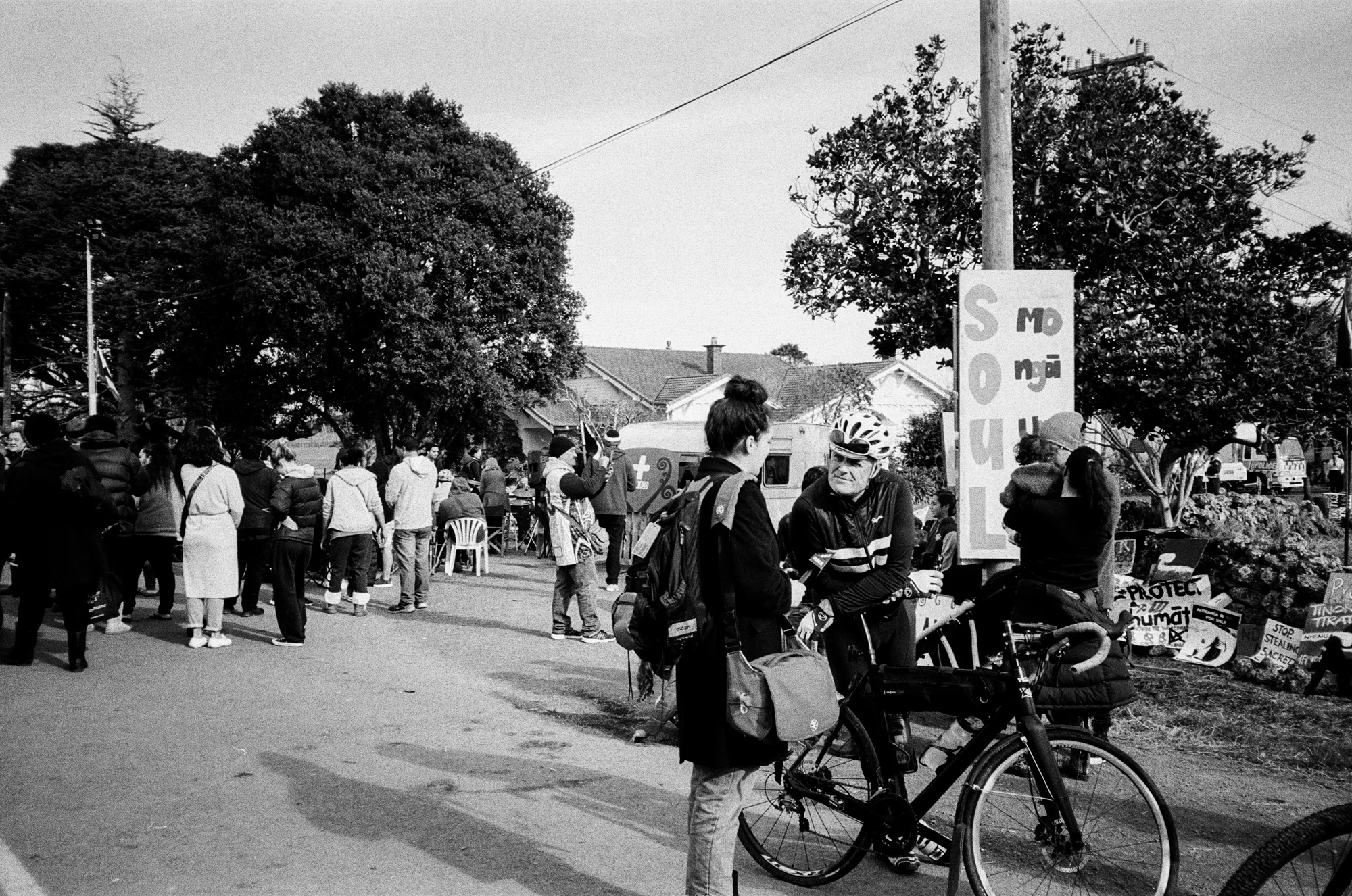
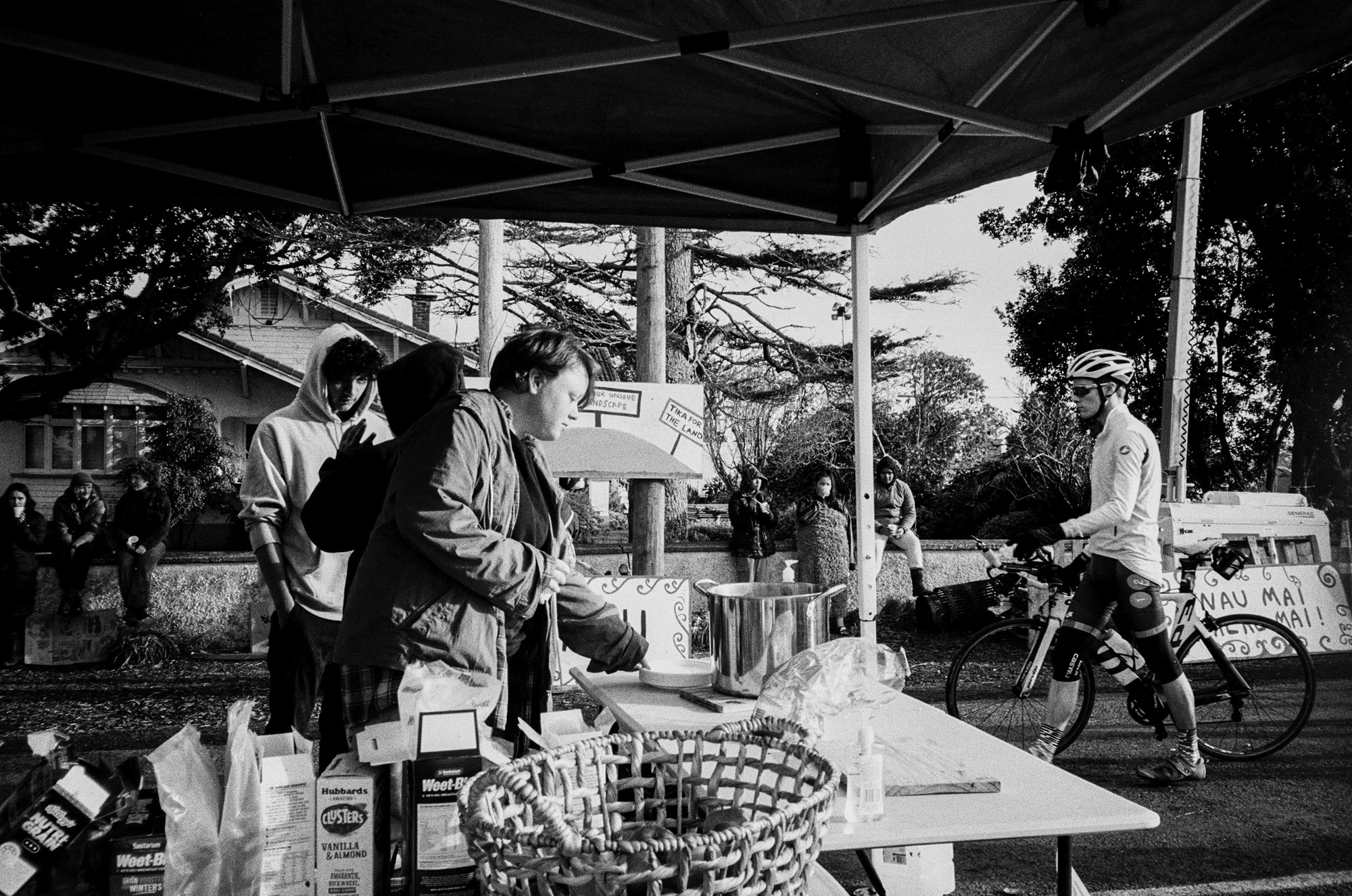
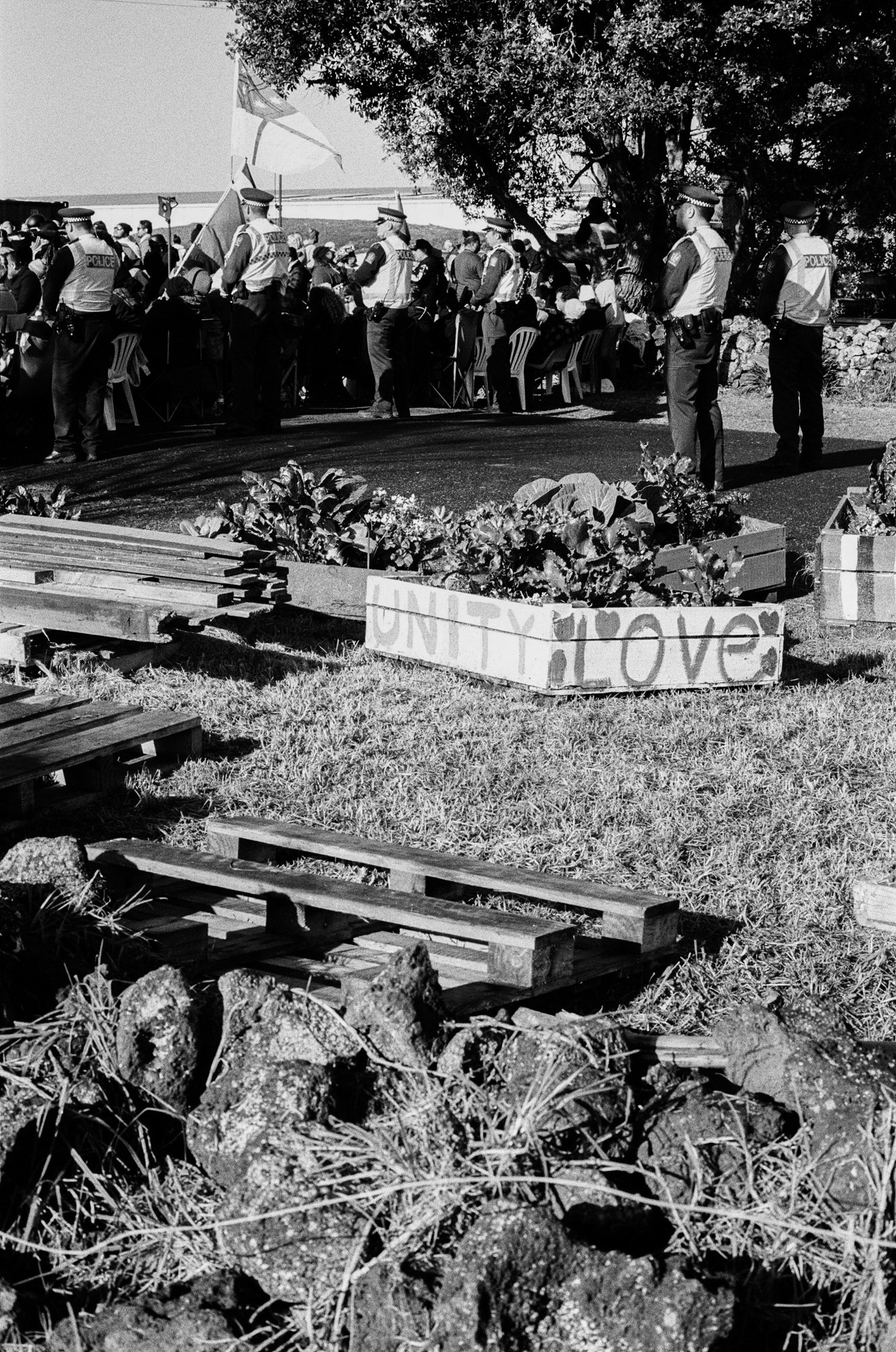
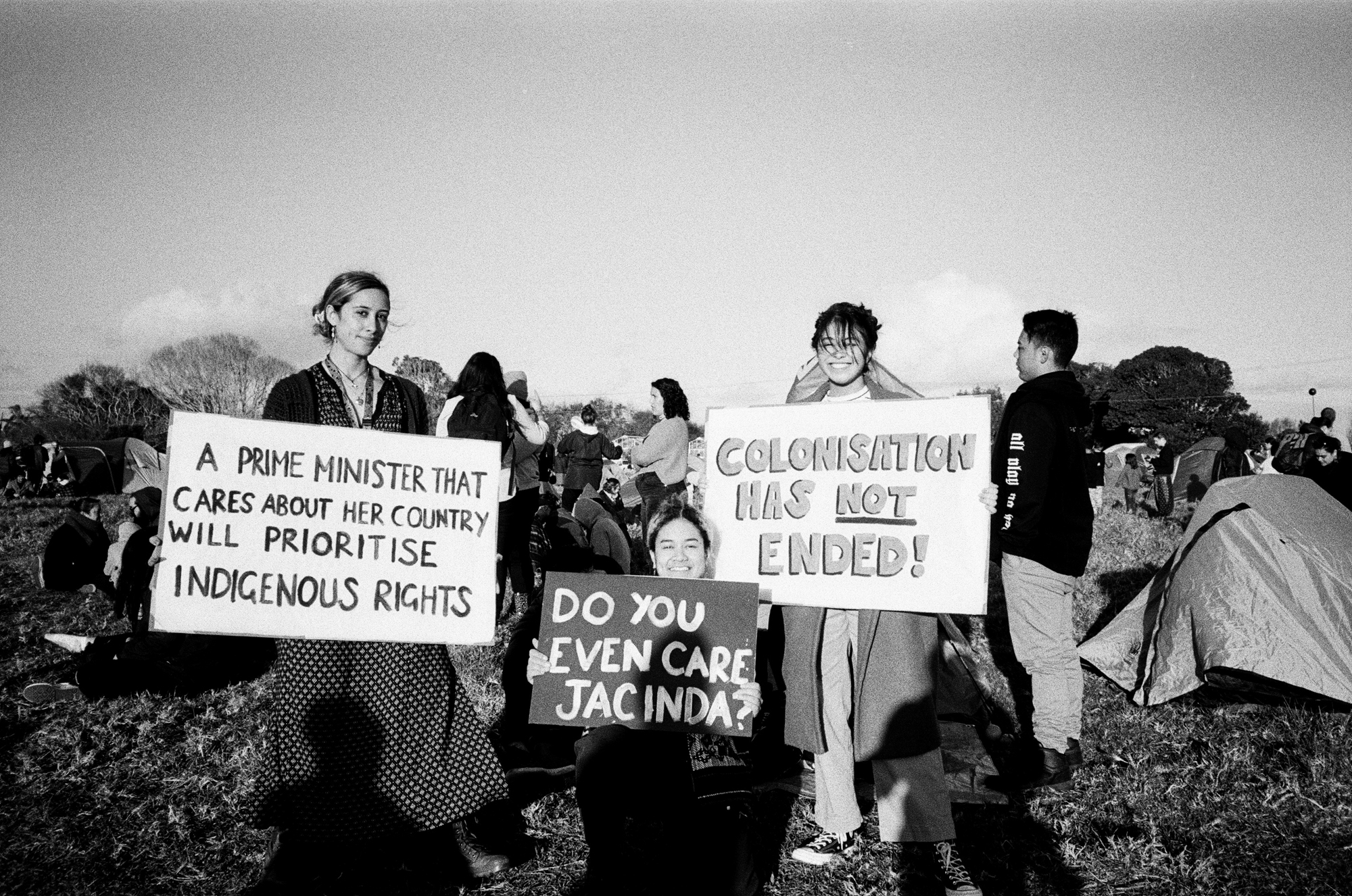
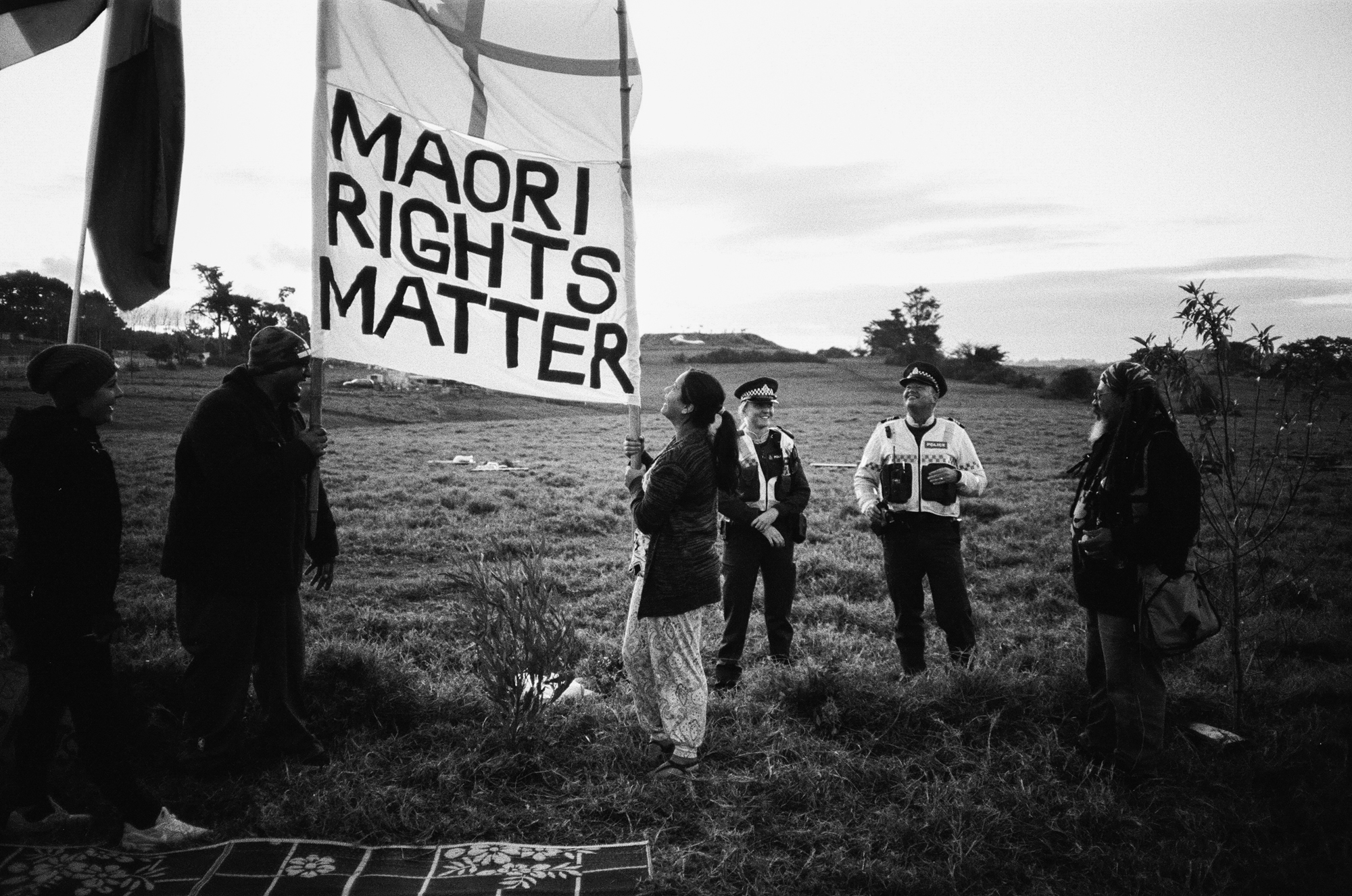
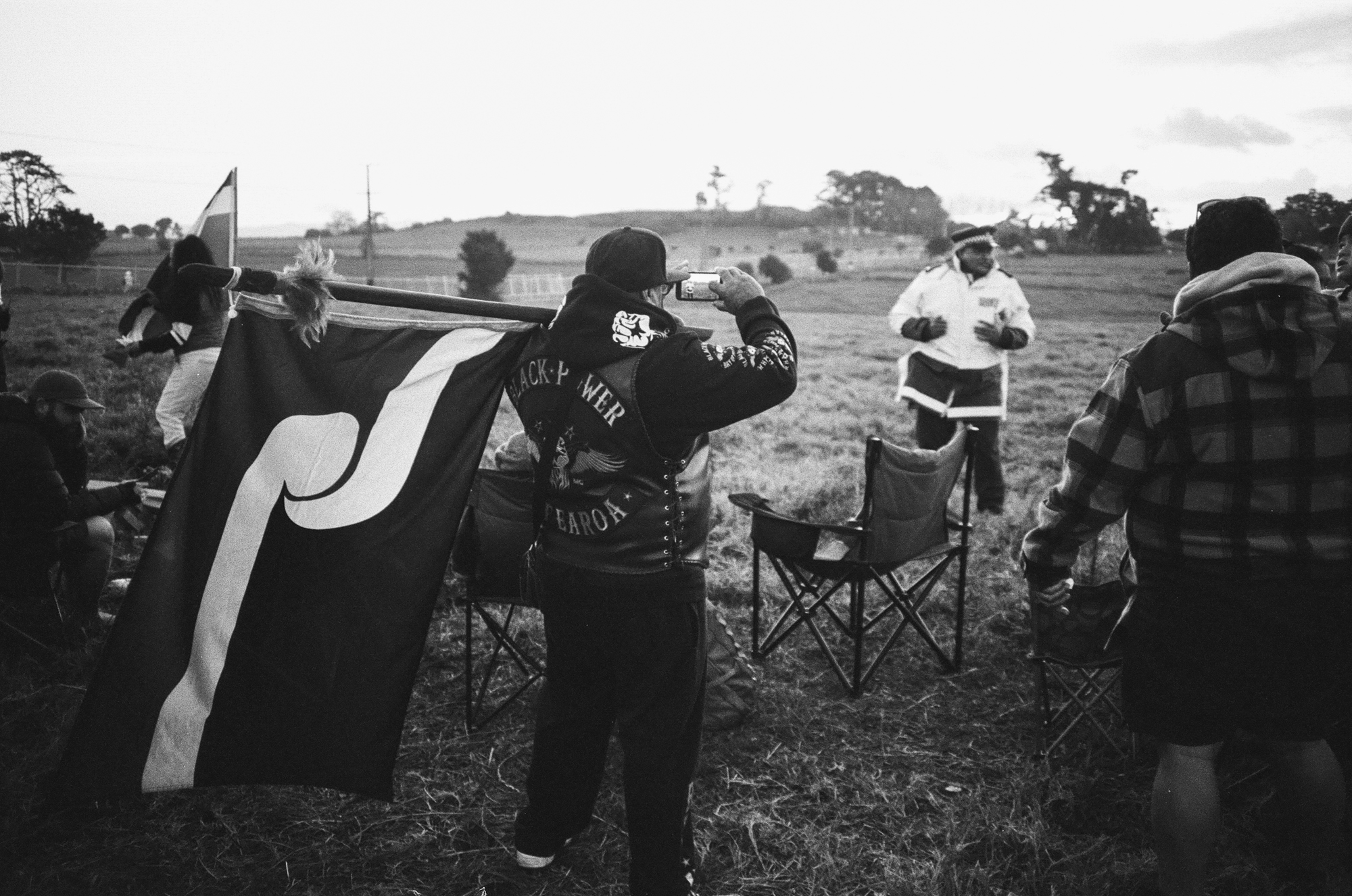
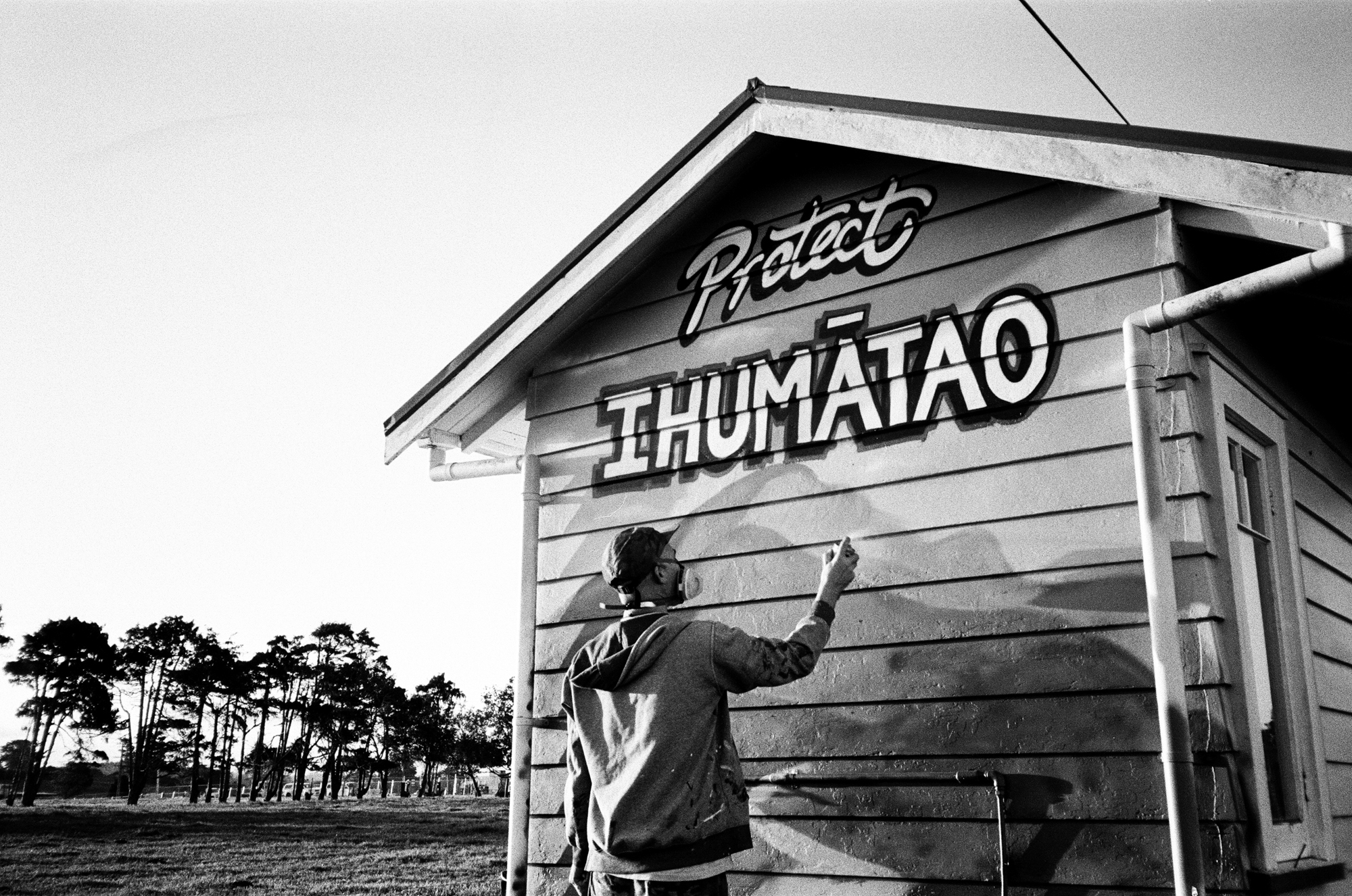
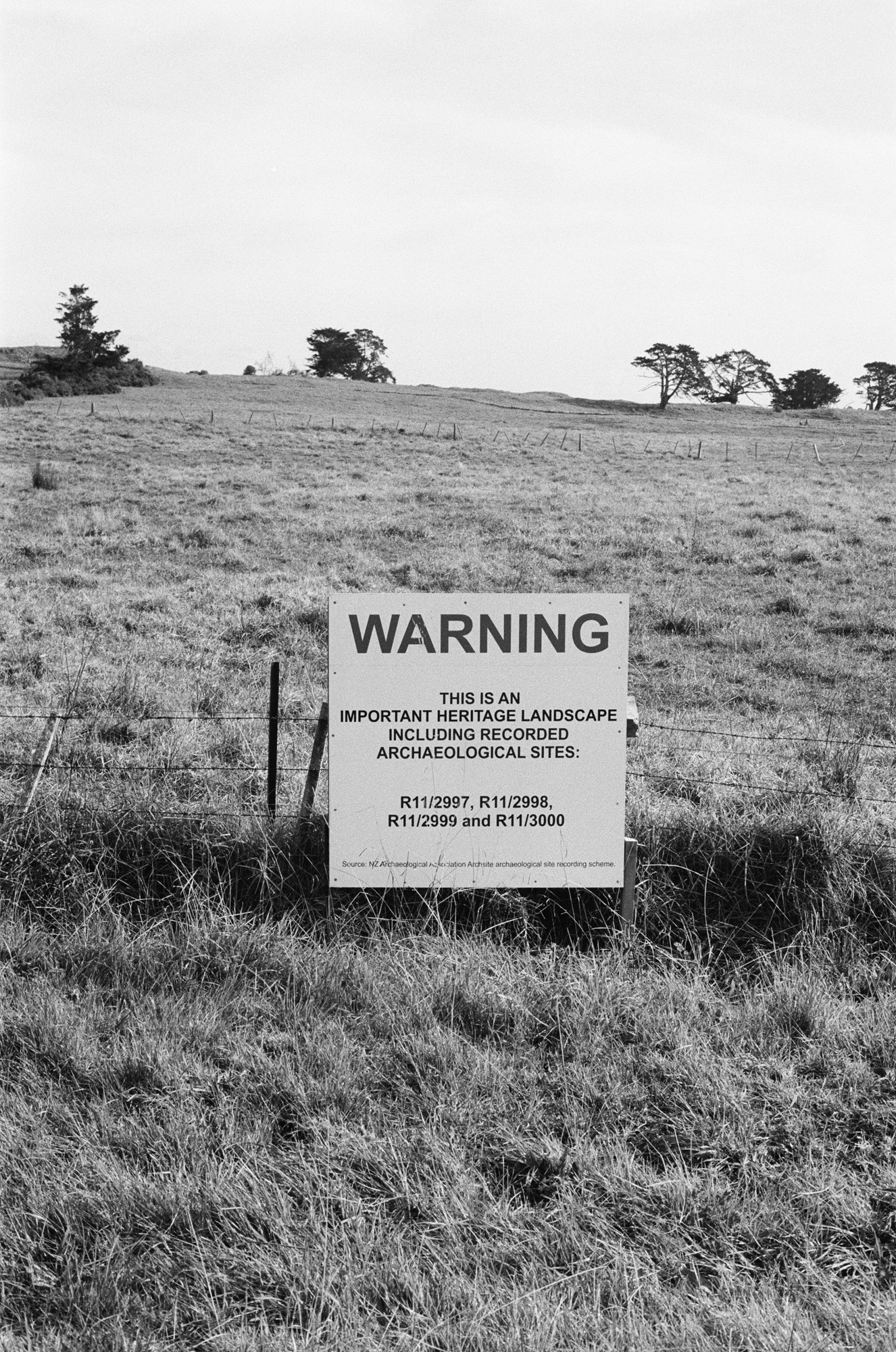
Responsibility - to understand and undo.
I’ve realised that privilege comes with a responsibility. If I’m privileged to gain enough money to put a deposit on a house, should I just clap my hands, buy my house and carry on living? Or as someone benefiting from the housing system do I now have a responsibility to help others who are being negatively affected by the housing system? As someone benefiting from privilege at the expense of those on the other side, should I just be grateful that I’m not the one on the other side, or should I be using my privilege to help with the work of balancing the scales? And what does it look like to “balance the scales”? I know I keep sending you off to read things but Murray Rae makes some great points about justice and scale-balancing in relation to Ihumātao here: Notions of achieving justice tested.
Let me be clear about what I believe - if you (like me) benefit from this lopsided system, then you have a responsibility here. You have to step outside that cosy worldview and confront yourself with the reality that others are living with. You need to make steps to begin understanding what it feels like to be on the other side of racism and colonisation. What it feels like to live with the generational wounds from the horrific acts in the history of “New Zealand”. You have a responsibility to try to understand what this movement wants and why, and how we can seek justice together.
We also need to understand how vital the deep well of tradition and knowledge found in Māori culture is to our country - there is so much we can learn from if we can be open and trusting. I really believe that Māori culture holds keys that can help us all to heal. This is so much bigger than a land dispute. We’re looking at the generational effects of colonisation, a flawed system, profits vs people, the sacred feminine, the environment, religion, justice, and an empowering of people who have had enough. Ihumātao feels like a glimpse of what this country could look like if Māori were truly respected as kaitiaki (guardians) of Aotearoa.
I believe understanding is the first step. Please try to listen and understand before you form and verbalise your opinion. Once we start understanding the Māori experience in Aotearoa, the importance of this movement will start to become clear and the undo-ing (decolonisation) will gain more traction.
I’m sorry for the amount of generalising I’ve had to do here, but I hope you can see where I’m coming from. If there is healing to happen in this country, we all have a part to play.
With privilege comes responsibility.
-Sam
